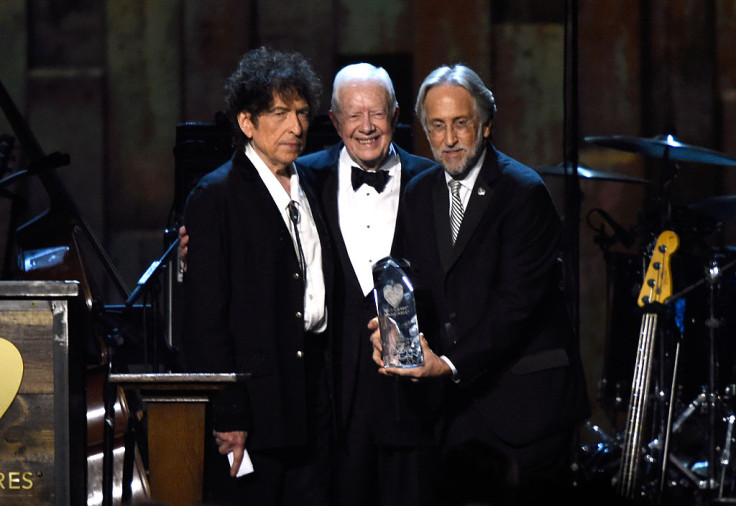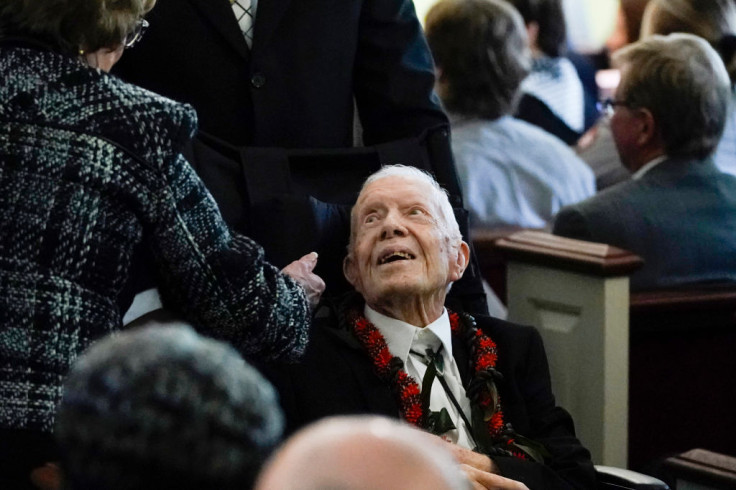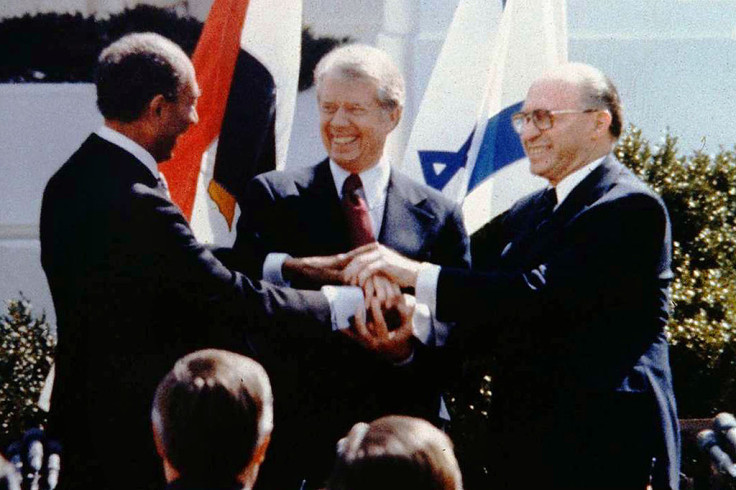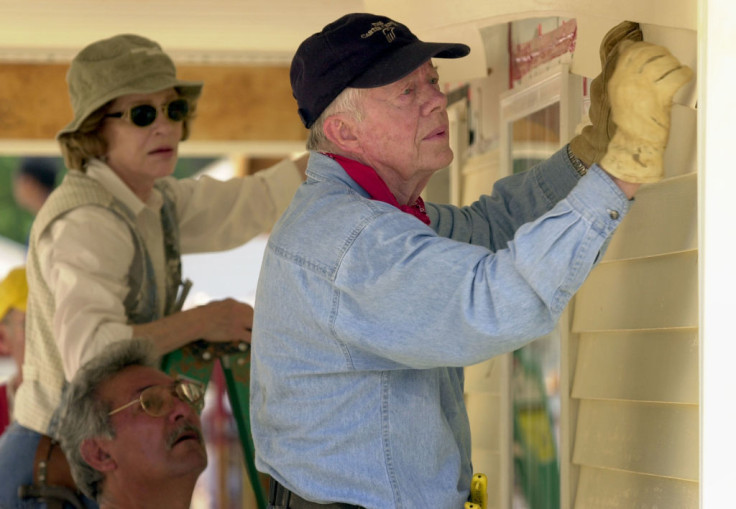Former President Jimmy Carter Turns 100
The soft-spoken Democrat will mark the milestone after starting hospice care last year

Former President Jimmy Carter's decision to begin home hospice care for brain cancer more than a year ago spurred moving commemorative tributes that turned out to be premature.
And now America's longest-lived leader is set to mark a major milestone — his 100th birthday — on Tuesday.
The soft-spoken Democrat broke the mold for presidential candidates as an unabashed rock 'n' roll fan who cultivated friendships with Bob Dylan, Willie Nelson and the Allman Brothers Band, which staged crucial fundraising concerts for his long-shot 1976 primary campaign.
"They are good people, they are my friends, and anybody who wants a president who doesn't like music like this, and who doesn't like people who make music like this, should just simply vote for another man," he said before a 1975 benefit show in Rhode Island, the Harvard Crimson reported at the time.

Carter also helped hammer out the Camp David Accords that led to peace between Israel and Egypt but only served a single term after a weak economy and the botched rescue of Americans held hostage in Iran doomed his 1980 reelection bid.
Carter's anticipated centenary milestone was celebrated in September with a gala concert at Atlanta's Fox Theatre, an award from Ohio's Dayton Literary Peace Prize Foundation and this past weekend's Plains Peanut Festival in his tiny Georgia hometown.
Tuesday will also see trees planted in Carter's honor next to his statue outside the Georgia State Capitol and at The Carter Center in Atlanta, where 99 more will planted through March, according to the local WAGA-TV.
Carter has been unable to attend any of the events and last appeared in public for the Nov. 29 funeral of his wife, Rosalynn Carter, looking gaunt and frail in a wheelchair next to the front pew in the Maranatha Baptist Church in Plains.

A Navy submarine officer who resigned his commission to take over his family's peanut farm and seed business following his father's 1953 death, Carter later entered politics and served one term as Georgia's governor before running for president in the wake of the Watergate scandal.
After ousting unelected Republican President Gerald Ford to become the nation's 39th president, the self-styled Washington outsider bucked tradition by walking from the Capitol to the White House following his inauguration.
He also famously wore a cardigan sweater in 1977 for a televised fireside chat during which he urged Americans to turn down their thermostats in response to the country's energy crisis.
Carter scored a major foreign policy victory when he hosted a series of negotiations at Camp David that led to the historic March 1979 peace treaty between Israel and Egypt.

But his July 1979 Oval Office address about a "crisis of confidence" gripping the nation due to its weak economy was widely derided as Carter's "malaise speech," and a failed military mission in April 1980 to rescue 52 Americans being held hostage in Iran cemented his image as a generally inept commander in chief.
Carter's bid for a second term was also marred by an 11.3% annual inflation rate and 5.8% unemployment, ending in a landslide loss to former Republican California Gov. Ronald Reagan, a onetime Hollywood actor with a knack for such snappy sayings as, "Are you better off than you were four years ago?"
After leaving office, Carter returned to Plains, where he and Rosalynn worked to establish The Carter Center, and in 1984 they began a series of high-profile volunteer efforts with the Habitat for Humanity charity.

Carter also served as a U.S. diplomat and advocated for human rights, leading to a 2002 Nobel Peace Prize. He became a prolific author, writing everything from memoirs to poetry to a children's book illustrated by his daughter Amy Carter.
© Copyright IBTimes 2024. All rights reserved.





















